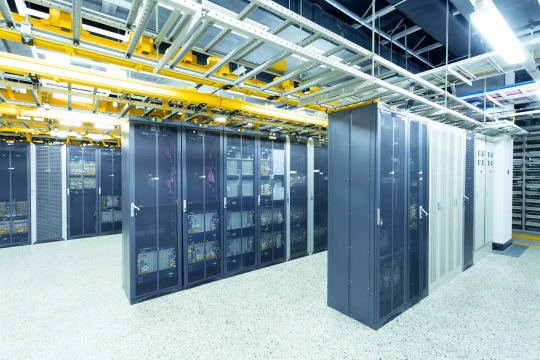Text
Which Businesses Need Backup Power Sources

In an age where reliance on electricity is ubiquitous, businesses across Australia are increasingly recognising the importance of backup power sources. Whether it’s to mitigate the risks of power outages, ensure continuity of operations, or comply with industry regulations, having a backup power solution in place is becoming essential for certain types of businesses.
1. Healthcare Facilities
Hospitals, clinics, aged care facilities, and other healthcare institutions rely on uninterrupted power to sustain life-saving equipment, medical devices, and essential services. A power outage in such facilities can have dire consequences, potentially compromising patient care and safety.
Therefore, backup power systems, such as uninterruptible power supplies (UPS), are crucial to ensure continuous operation during blackouts or grid failures.
2. Data Centres and IT Companies

In today's digital landscape, data reigns supreme, making uninterrupted data processing and storage imperative for businesses. The reliability of power sources is paramount for data centres, IT companies, and businesses reliant on critical IT infrastructure.
To mitigate the risks of financial losses and reputational harm, backup power solutions play a pivotal role. Here's why they're indispensable:
Prevention of Data Loss: Ensures continuous operation during power outages, safeguarding against potential data loss.
Maintaining Seamless Operations: Enables businesses to uphold their services without interruption, fostering customer satisfaction and trust.
Protection Against Voltage Fluctuations: Shields sensitive equipment from damage caused by voltage fluctuations and surges, extending their lifespan.
Enhanced Security Measures: Offers an added layer of security, ensuring data integrity and compliance with regulatory standards.
In essence, backup power solutions serve as the backbone of reliable data management, safeguarding businesses against unforeseen disruptions.
3. Telecommunications Providers
In the intricate web of modern society, telecommunications networks stand as the linchpin, facilitating vital communication and connectivity across the globe. To uphold this essential function, telecom providers rely on robust backup power systems to ensure uninterrupted service delivery, particularly during emergencies and unforeseen events.
Here's why these systems are indispensable:
Continuous Operational Capability: Backup power systems enable telecom infrastructure to remain operational even in the face of power outages or grid failures.
Emergency Response Support: Uninterrupted communication channels are critical for effective emergency response efforts, enabling swift coordination and assistance.
Public Safety Assurance: Reliable telecom services during crises bolster public safety by ensuring access to emergency services and disseminating crucial information.
Mitigation of Financial Losses: Minimising downtime through backup power solutions helps telecom providers avoid significant financial losses due to service disruptions.
In essence, backup power systems serve as a safeguard, ensuring the resilience of telecommunications networks in times of need, thereby upholding the interconnected fabric of modern society.
4. Financial Institutions

Banks, stock exchanges, and other financial institutions rely heavily on continuous power to ensure uninterrupted transaction processing, ATM functionality, and online banking services. Any interruption in power supply can result in financial losses, regulatory non-compliance, and customer dissatisfaction. Backup power solutions, therefore, are indispensable for maintaining the integrity and reliability of financial systems.
5. Manufacturing Plants and Industrial Facilities
Manufacturing plants, refineries, and industrial facilities often operate critical machinery and production lines that cannot afford downtime. Power outages in these settings can lead to costly production delays, equipment damage, and loss of revenue. Backup power sources provide a safety net, allowing these businesses to maintain productivity levels and avoid disruptions to supply chains.
6. Retail Chains and Supermarkets
Retailers depend on electricity to power lighting, refrigeration systems, point-of-sale terminals, and security systems. During power outages, supermarkets and retail chains risk losing perishable goods, disrupting transactions, and compromising store security. Backup power solutions, such as battery backups, help retailers minimise losses and maintain essential services for customers.
7. Emergency Services and Government Agencies
Emergency services, including police stations, fire departments, and disaster response agencies, require uninterrupted power to carry out their critical functions. Power outages during emergencies can hinder emergency response efforts, communication systems, and command centres. Backup power systems ensure that these essential services remain operational, even in the face of adverse conditions.
Conclusion
While backup power solutions are beneficial for various businesses and industries, they are not one-size-fits-all. The specific needs and requirements of each business will dictate the type and capacity of backup power systems required.
Partnering with a reputable distributor, such as Revolution Distribution, can provide businesses with access to a wide range of backup power products tailored to their unique needs. By investing in reliable backup power solutions, businesses can safeguard their operations, protect assets, and ensure continuity in the face of unexpected power disruptions.
1 note
·
View note